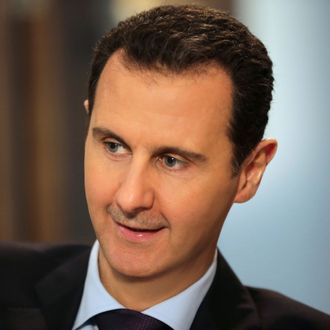
This month marked the sixth anniversary of the Syrian civil war, which began as peaceful protests against President Bashar al-Assad. Former President Barack Obama said, in the late summer of 2011, “Assad must go.” Though the United States gave some support to moderate Syrian rebels, Obama never intervened to help take down Assad. Meanwhile, the Syrian leader gained the full backing of the Russian military, which has helped him keep his grip on power. Now, the Trump administration is conceding to the reality that Assad will stay.
United Nations Ambassador Nikki Haley told reporters that “our priority is no longer to sit there and focus on getting Assad out. Our priority is to really look at how do we get things done, who do we need to work with to really make a difference for the people in Syria.” She added, “We can’t necessarily focus on Assad the way that the previous administration did.”
The U.S. outwardly acknowledging that ousting Assad isn’t on the to-do list is a blow to the moderate rebels, and something of a win for Russia, which took the risk and went all-in on Assad — which, given everything Russia-related right now, feels huge. But this is more a confirmation of an inevitable shift in U.S. policy than a complete reversal. The Obama administration had pushed for peace talks between the Assad government and the Syrian rebels (though the U.S. did reportedly scuttle an early deal because it wasn’t tough enough on Assad), but ousting him completely became extremely difficult the deeper Russia got involved on Assad’s behalf. The calculus also changed after the Aleppo cease-fire this December, which effectively put the once-divided Syrian city back under Assad’s control. The United States was pretty much frozen out of that process, with Turkey negotiating with Russia on behalf of the rebels to establish the truce.
Secretary of State Rex Tillerson also signaled a policy shift during a meeting in Turkey on Thursday, saying vaguely, “The status and the longer-term status of President Assad will be decided by the Syrian people.”





























